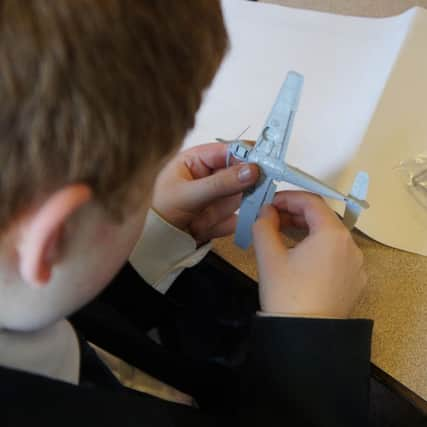COLUMN: Keep kids' minds active this summer


The six week break in the summer originated in Victorian times when children were required to help work the land. Children today have inherited the benefit of the long break without the drawback of the hard work! However, this period of inactivity can result in another drawback - a loss of momentum in their learning.
It is noticeable that, in September, it takes a while for students to return to the school routine and the pace of learning is slower than had been achieved prior to the break. This runs the risk of demoralising the child – and their teachers!
Advertisement
Hide AdAdvertisement
Hide AdSo, what can be done to minimise this effect of the six week break, while capitalising on the positive aspects? There are many ways to keep children’s brains active in the summer holidays, without them even noticing -


- Play family games - Cluedo, Scrabble, darts, chess and card games all keep the little grey cells ticking over.
- Read a book (or two!) - visit your local library if you want to try out several genres to see what appeals.
- Build a model - following instructions and working out what goes where, is all good stimulation for the brain.
Advertisement
Hide Ad- Cook together - following a recipe requires maths and English, as well as learning an essential life skill.


Advertisement
Hide Ad- Get out and about - walk, cycle, swim. Physical activity stimulates the brain as well as the body.
- Maths challenges - challenge your child to spend 15 minutes completing two or three maths challenges a day. Your child will have access to resources provided by their school, which can help with this.
- Plan a family day out - give your child a budget and work with them as they plan activities, timings and travel arrangements.
Advertisement
Hide AdSome may appeal, some may not, but anything you can do to keep your children mentally and physically active during the summer break will pay dividends on their return to school in September. Even better - helping your child to learn how to stave off boredom should result in a more harmonious six week break for all. You may surprise yourselves - you may all enjoy it!